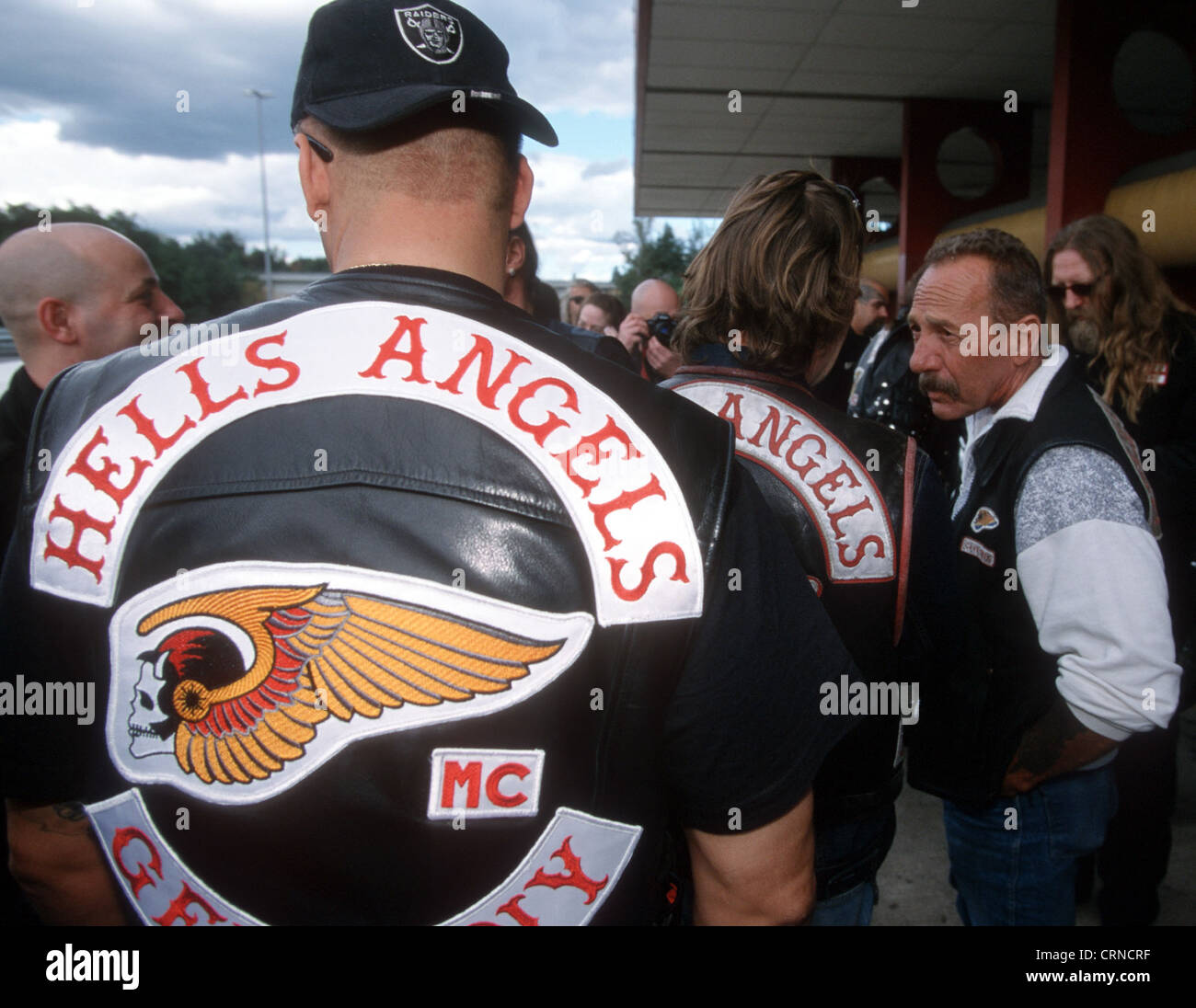The Hells Angels, a name synonymous with motorcycles, brotherhood, and an enigmatic lifestyle, has a significant footprint not just in the United States but also across the globe, including Germany. "Hells Angels German" refers to the German chapters of this internationally renowned motorcycle club, which has evolved into a cultural phenomenon and a subject of fascination. Known for their distinctive leather jackets, roaring Harley-Davidson motorcycles, and a code of conduct steeped in loyalty, the German faction of the Hells Angels has contributed to the group’s global mystique. Their presence in Germany is as much about their love for the open road as it is about their controversial and multifaceted history.
The Hells Angels in Germany have been both lauded and criticized. While some admire their camaraderie, charitable contributions, and shared passion for motorcycles, others raise eyebrows at their alleged involvement in criminal activities. Regardless of the polarizing opinions, one thing is clear—the Hells Angels German chapters hold a unique place in both motorcycle culture and broader societal narratives. Their story is intertwined with themes of freedom, rebellion, and the complexities of modern life, making them a compelling subject for analysis.
This article delves deep into the history, structure, culture, and controversies surrounding the Hells Angels German chapters. Whether you're intrigued by their origins, curious about their activities, or simply captivated by their legendary status, this comprehensive guide will shed light on everything you need to know. From their formation to their impact on German society, we’ll cover it all, offering a balanced perspective that neither glorifies nor vilifies this iconic motorcycle club.
Read also:Strike Petroleum Meaning A Detailed Guide To Oil Exploration Success
Table of Contents
- Biography and Origins
- The Birth of Hells Angels in Germany
- Structure and Hierarchy
- Cultural Significance
- Motorcycles and Symbolism
- Controversies and Legal Issues
- Charity and Community Involvement
- Rivalries with Other Groups
- Media Portrayal
- Global Connections
- The Code of Conduct
- Hells Angels Today
- Frequently Asked Questions
- Conclusion
Biography and Origins
The Hells Angels Motorcycle Club (HAMC) was founded in Fontana, California, in 1948. The group began as a small collective of motorcycle enthusiasts who shared a love for Harley-Davidsons and an affinity for pushing societal boundaries. Over decades, the club expanded internationally, with chapters opening in several countries, including Germany. The German chapters, referred to here as "Hells Angels German," have become some of the most influential in Europe.
The Hells Angels' name reportedly originated from World War II fighter squadrons with the same moniker, symbolizing daring and defiance. Adopting the name, the founders imbued it with a sense of rebellion and freedom, traits that became hallmarks of the group. Over time, the Hells Angels developed a complex organizational structure, complete with bylaws, membership rituals, and a strong sense of loyalty among their members.
Personal Details (Founder and Key Figures)
| Aspect | Details |
|---|---|
| Full Name | Hells Angels Motorcycle Club |
| Founded | 1948 |
| First German Chapter | 1973 |
| Key Symbol | Winged Death Head |
| Primary Activities | Motorcycle Riding, Club Events, Charity Work |
The Birth of Hells Angels in Germany
The Hells Angels officially arrived in Germany in 1973, setting up their first chapter in Hamburg. This marked the beginning of a new era for the motorcycle club in Europe. Germany proved to be fertile ground for the Hells Angels, as the country already had a burgeoning biker culture, complete with a love for motorcycles and a penchant for counterculture movements.
Over the years, the Hells Angels German chapters grew in size and influence. They became a prominent part of the country's biker scene, organizing events, rallies, and rides that attracted motorcycle enthusiasts from across the continent. Their presence also sparked the formation of rival clubs, leading to a dynamic—and at times contentious—biker subculture in Germany.
The establishment of the Hells Angels in Germany involved adapting their American roots to the local context. While the core values of brotherhood and freedom remained the same, the German chapters developed their own unique identity, blending elements of traditional German culture with the rebellious spirit of the Hells Angels.
Frequently Asked Questions
- What is the origin of the Hells Angels German chapters?
The first German chapter was established in Hamburg in 1973, following the club's expansion from the United States. - Are the Hells Angels German chapters involved in charitable activities?
Yes, despite their controversial reputation, many chapters organize charity events and contribute to local communities. - How many Hells Angels chapters exist in Germany?
Germany is home to several chapters, though the exact number may vary over time due to organizational changes. - What motorcycles do Hells Angels members prefer?
Harley-Davidson motorcycles are the preferred choice, as they are closely tied to the club's identity. - Are the Hells Angels German chapters legal?
While the club itself is legal, some individual members have faced legal issues, which has led to public scrutiny and debate. - How do the Hells Angels maintain their global connections?
The club has an international network of chapters that collaborate and communicate regularly, fostering a sense of unity.
Conclusion
The Hells Angels German chapters represent a fascinating blend of tradition, rebellion, and cultural significance. While their activities and reputation may spark debate, their impact on motorcycle culture and their role in shaping Germany's biker scene cannot be denied. Whether admired or criticized, the Hells Angels remain a symbol of freedom, loyalty, and the unyielding spirit of the open road.
Read also:Critical Impact And Response To Fork Fire Glendora A Detailed Analysis

